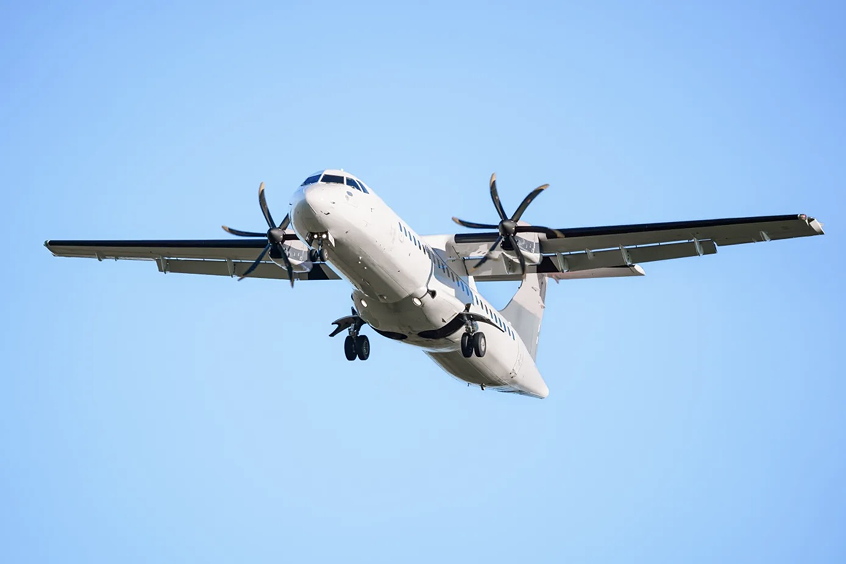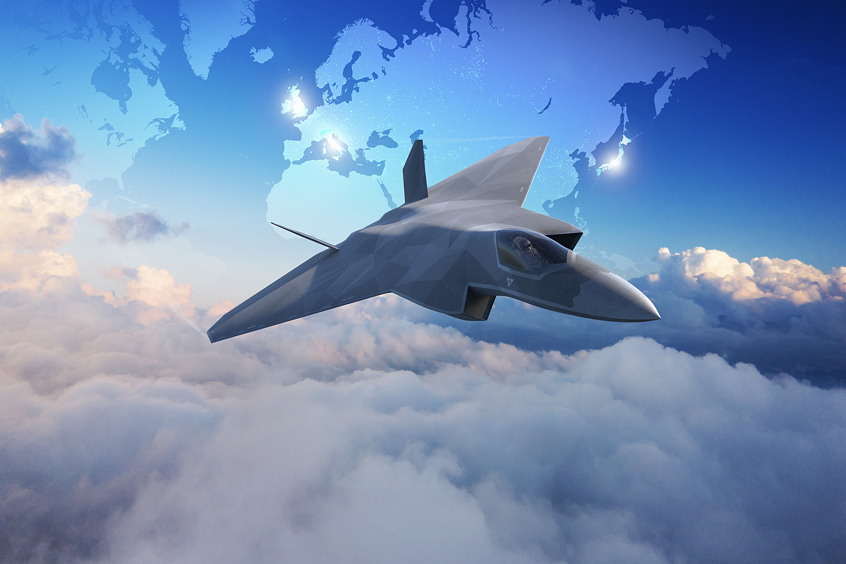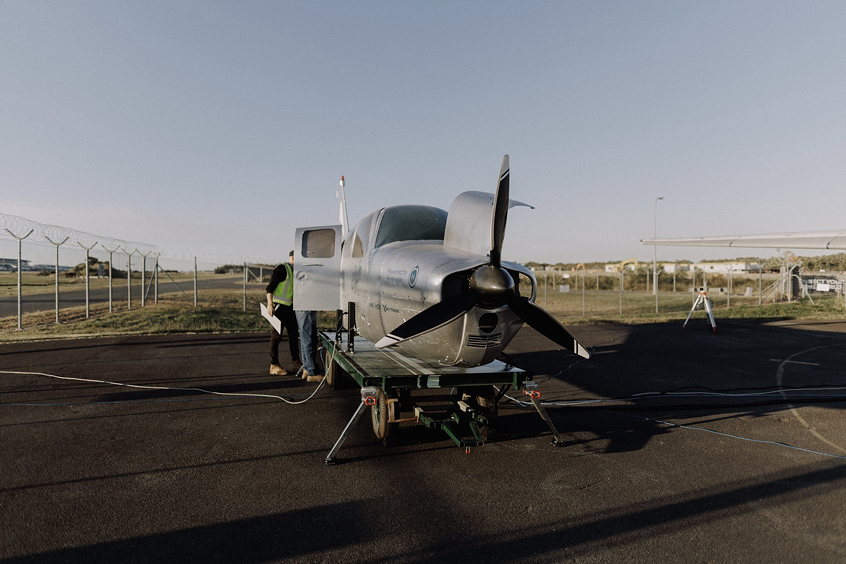Garmin has introduced G3000 PRIME, said to be its most advanced integrated flight deck yet. It features sleek, intuitive, all-touchscreen displays and a highly flexible open system architecture that adapts to serve a broad and dynamic market. With a state-of-the-art user interface design and advanced connectivity, G3000 PRIME leverages cutting-edge technologies that can enhance safety potential and efficiency while minimising pilot workload in every phase of flight. Now FAA TSO certified, G3000 PRIME is ready to elevate and serve Part 23 turbine, military and advanced air mobility (AAM) markets.
G3000 PRIME features expansive 14-inch touchscreen primary display units (PDU) with edge-to-edge, sunlight-readable, fingerprint-resistant glass, redefining expectations in cockpit aesthetics and functionality. The vibrant displays include multiple performance enhancements such as quadruple the memory and gigabit system connectivity that is up to 100 times faster. New, faster multi-core processors more than double the processing power – leveraging Garmin's experience certifying multi-core technology for civil and military aviation markets as early as 2017. Additionally, higher display refresh rates provide crisp, smooth animations and an impressively responsive and fluid experience.
Complementary secondary display units (SDU) provide data entry and system control, with the added capability to display multi-function applications. The high-resolution, 7-inch SDUs boast a 40% increase in screen area over prior Garmin touch controllers. Additionally, in certain aircraft applications, the SDUs can double as an integrated standby flight instrument display, removing the need for a dedicated standby flight instrument in the panel.
G3000 PRIME's new advanced multi-touch touchscreen interface, capable of recognising up to 10 touchscreen inputs at once, allows both pilot and copilot to interact with the same display simultaneously. The enhanced multi-touch technology also enables on-screen hand stabilisation, allowing pilots to give precise touchscreen inputs while simultaneously resting their fingers on the display. Support for dedicated control devices allow for intuitive physical control of commonly used functions through Garmin-designed products and third-party devices, as well as hands-on throttle-and-stick (HOTAS) controller designs for the military and defense markets.
The interface features enhanced fonts and iconography to ensure clarity and familiarity, while smartly organised and shallow application menus provide quick access to critical functions.
Primary Flight Windows (PFW) and Multi-Function Windows (MFW) maximize situational awareness with full-screen or split-screen options. New quick access bars allow pilots to open common apps such as maps, traffic, weather and charts with one touch. While viewing maps, pilots can touch anywhere to open a radial menu with options for accessing additional airport, weather, or airspace information, or quickly adjusting a flight plan via graphical editing. Interactive engine and electrical indications allow pilots to quickly open systems controls and information such as cabin environmental controls, synoptics and more.
To further ease information management, the Window Manager feature allows pilots to configure app display, window sizing, and more across the entire flight deck from one SDU. The Window Manager also provides multiple preset options that can configure all displays with one command, eliminating the need for operators to manually configure each window for various phases of flight.
G3000 PRIME provides enhanced flight management system (FMS) tools like the Modified Flight Plan, which allows pilots to use both the PDU and SDUs to provide a side-by-side graphical preview of flight plan changes, including performance calculation comparisons or what-if scenarios. During initialisation, pilots can also elect to set up an Emergency Return function, which simplifies pilot responses to in-flight emergencies shortly after takeoff. Recently introduced to Garmin integrated flight decks, Taxiway Routing has been further improved to provide automated route guidance on the 2D navigational maps and 3D Synthetic Vision Technology (SVT) depictions.
G3000 PRIME provides advanced automation with smart checklists that are linked to crew alerting system (CAS) messages. When pilots receive a CAS message that is associated with a checklist, pilots may simply tap the message to open the appropriate checklist with a single touch. The checklists can also now sense indications and show within the checklist that the item is in the correct position, value or configuration – or provide pilots the option to quickly view detailed synoptics. Integration with Garmin-designed Electronic Power Distribution Systems replaces traditional switches with intuitive electronic circuit breakers, providing enhanced automation and ensuring a streamlined and modern cockpit experience.
G3000 PRIME features a wide array of advanced safety-enhancing technologies available only from Garmin, including Autonomí, Garmin's family of autonomous safety-enhancing technologies. Collier Trophy recipient, Garmin Autoland, can take complete control of the flight to land the aircraft in an emergency situation where the pilot is unable to do so. Additional safety tools such as Smart Glide, Smart Rudder Bias, Electronic Stability Protection (ESP), Emergency Descent Mode (EDM) and Garmin Autothrottle further ensure confidence in every flight.
Garmin's terminal safety solutions add even more capabilities to G3000 PRIME-equipped aircraft. Recently announced Runway Occupancy Awareness (ROA) technology analyzes GPS and ADS-B traffic information relevant to the airport's runways and taxiways to assess and alert the flight crew of a possible runway incursion or collision. ROA builds upon Garmin's other terminal safety solutions including Runway Overrun Awareness and Alerting System (ROAAS), 3D SafeTaxi and Garmin SurfaceWatch.
Stay fully connected while flying behind G3000 PRIME using a variety of supported connectivity options such as Wi-Fi, LTE, Bluetooth, SiriusXM, Connext Satellite Services and more. Garmin's PlaneSync connected aircraft management system automatically updates databases, logs flight and engine data and allows aircraft owners and operators to remotely check fuel and systems status via the Garmin Pilot app. Automated cockpit functions such as flight plan uploads over PlaneSync ensure pilots have access to real-time data, enhancing their operational efficiency and decision-making. G3000 PRIME also supports Controller Pilot Data Link Communication (CPDLC), including the FAA Data Comm and Eurocontrol Link 2000+ programs, for faster departure clearance (DCL) — as well as enroute exchange of data link messages with air route traffic control centers.
"Twenty years ago, Garmin redefined the general aviation cockpit with the G1000, our first integrated flight deck," says Phil Straub, Garmin Executive Vice President and Managing Director, Aviation. "Ten years later, we introduced the G3000, bringing the first touch screens to the light turbine cockpit, and revolutionary technologies like the award-winning Garmin Autoland. With over 30,000 Garmin integrated flight decks now in service, we are proud to introduce G3000 PRIME, the industry's most intuitive and advanced flight deck to date."
G3000 PRIME has received FAA TSO certification. Initial aircraft delivering with G3000 PRIME will be announced by aircraft manufacturers.
| Contact details from our directory: | |
| Garmin International | ADS-B systems, Air Data Computers, Airborne Communication Systems, Attitude and Heading Reference Systems, Automatic Flight Control Systems, Autopilots, Autothrottle Systems, Avionics Management Systems, Collision Avoidance Systems/TCAS, Electronic Flight Instrument Systems, Engine Indicator Instruments, Flight Directors, Flight Management Systems, GPS, Head-Up Displays, Instrument Landing Systems, Magnetometers, Moving Maps, Onboard Airport Navigation Systems, Onboard Computers, Onboard Intercom Systems, Position Indicators, Radar Transponders, Radar/Radio Altimeters, Radio Communications Equipment, Satellite Receivers, Storm-Warning Radar, Terrain Awareness and Warning Systems, Transceivers, VOR (Omnirange) Receivers, Weather Mapping Radar |
| Related directory sectors: |
| Indicators and Instruments |
Weekly news by email:
See the latest Bulletin, and sign up free‑of‑charge for future editions.

Airbus Atlantic commits to EPI for metallic ATR components
Boeing commits to expand in Charleston County

GCAP partners agree to go ahead with next gen combat aircraft
